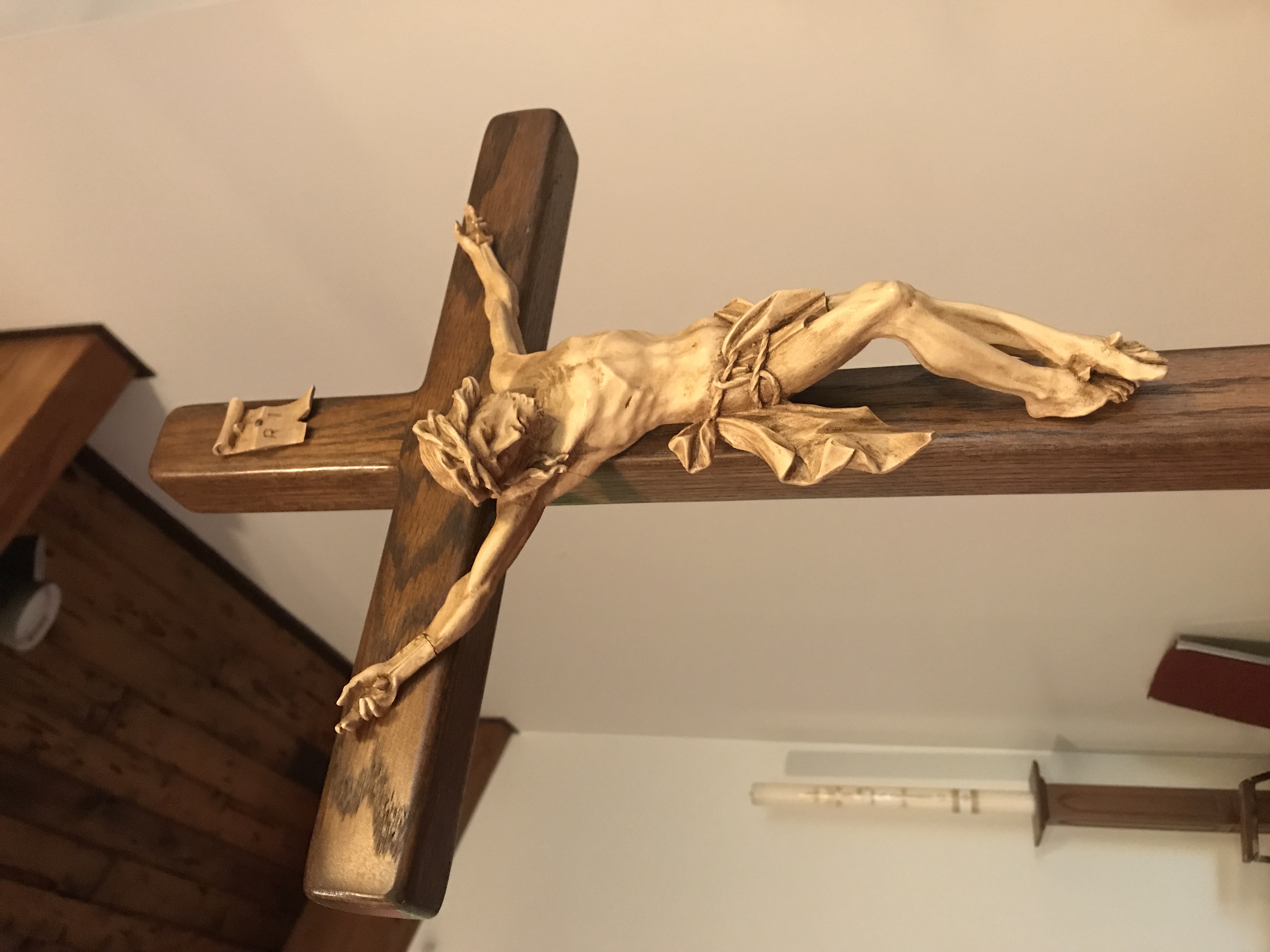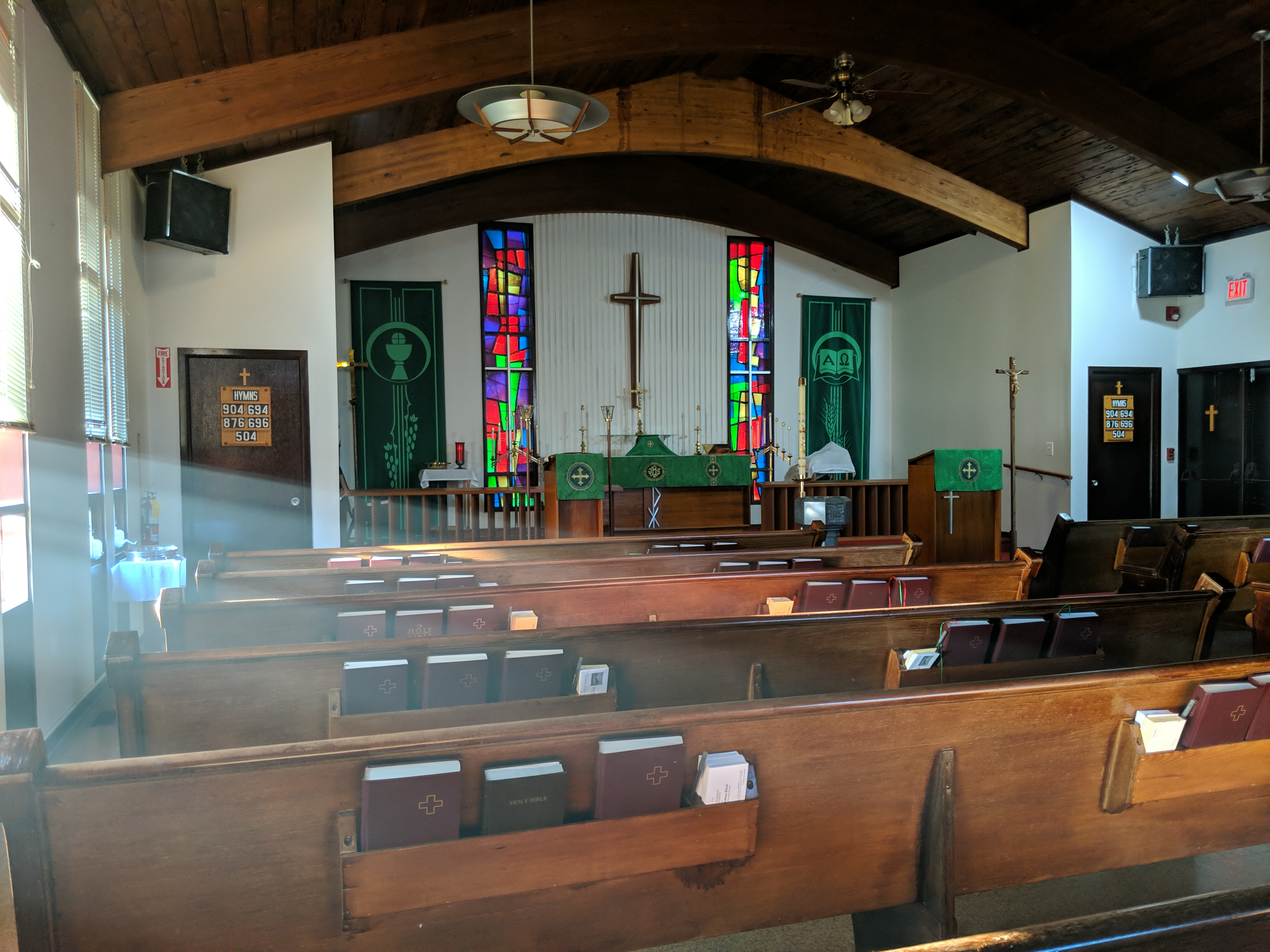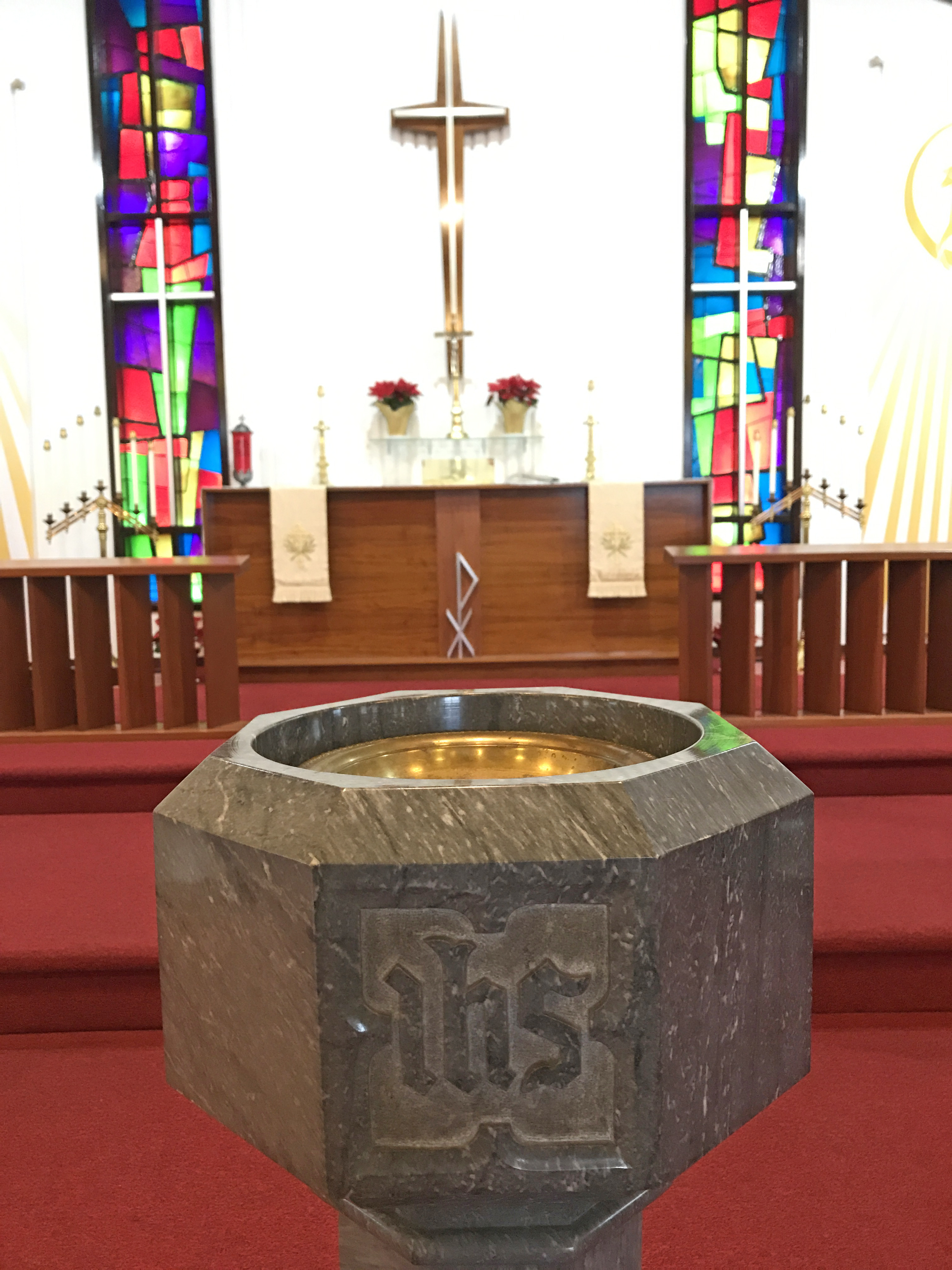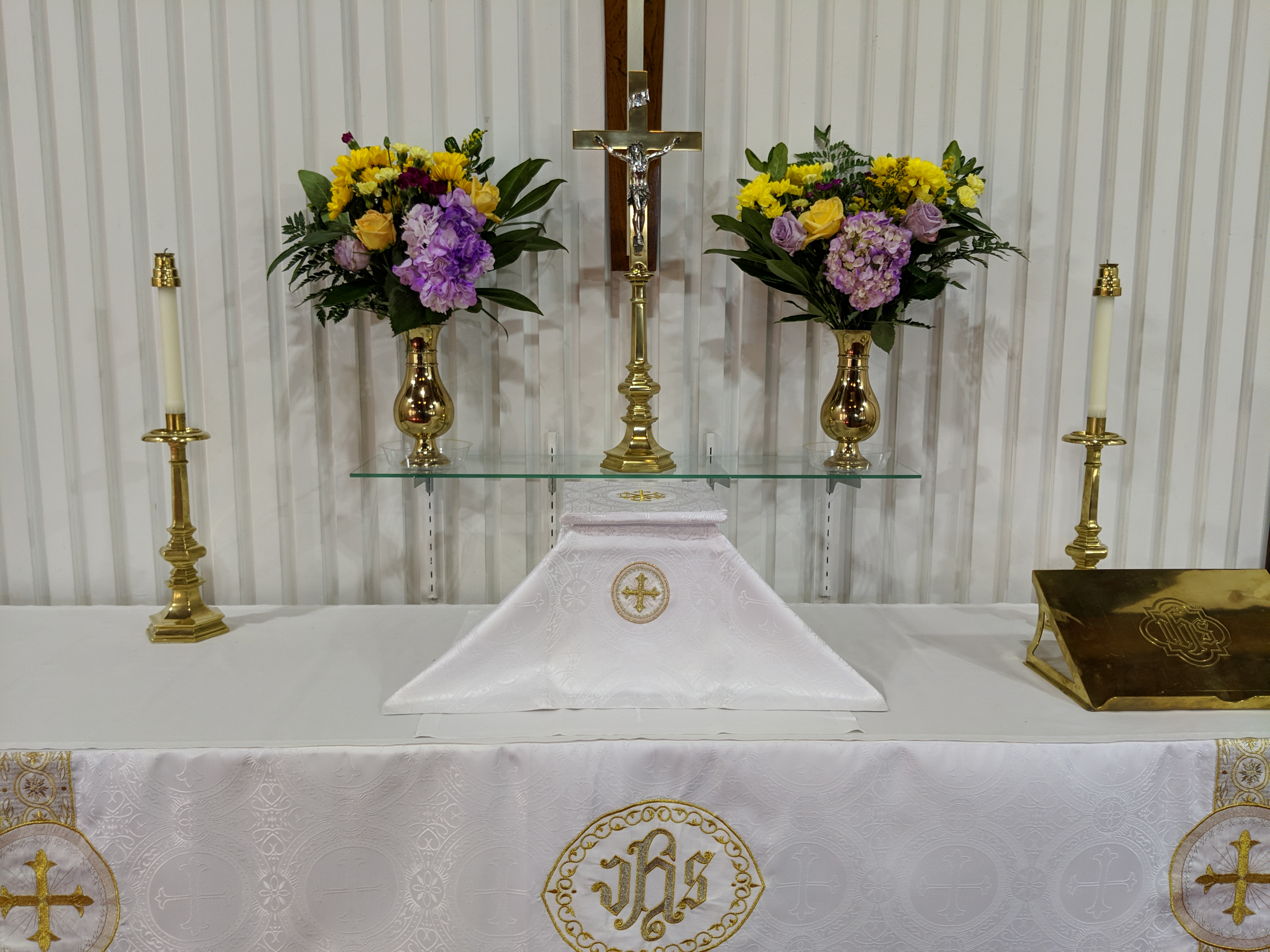The Twenty-First Sunday after Trinity – Sunday 20 October A✠D 2024
✠ Psalmody: Esther 13:9-11; Psalm 119:1;90:1-2;125:1
✠ Lection: Isaiah 25:6–9;Ephesians 6:10–17;St. John 4:46b–53
(Transcribed by TurboScribe.ai.)
In the name of the Father and of the Son and of the Holy Spirit. As the nobleman in John chapter 4 wisely goes up to Jesus to plead with him to come down, we too are wise to do the same, to ask the Lord to come down, especially when in the hour of deepest need. That is what prayer is, to ascend with our thoughts and our hearts to heaven, to the very throne of grace, to ask Jesus to come down to help us in every need.
We are more than privileged, we are more privileged even than the nobleman in John 4, because in Christ we are kings and priests, made kings and priests of his kingdom, the eternal kingdom. Therefore, we may boldly come to the throne of grace to seek help in time of need. Recount the nobleman’s story, what brought him there up to Cana of Galilee, from lowly down at Capernaum.
He lives down there in Capernaum, next to the sea, next to the place of turmoil, chaos. He is wealthy, he has servants to tend, hopefully, to his son as he leaves him seeking help for the fever and the illness that has his son on a point of death. This man is well connected or at least well informed.
He knows that Jesus has returned from Judea through Samaria and now there to Cana of Galilee. He has a sick son with a life-threatening fever at the point of death, the scriptures say. So he went up to Jesus to implore Jesus to come down and to heal his son.
Jesus says to him, unless you people see signs and wonders, you will by no means believe. Well, if we hear someone use this phrase in our day, you people, well, it has a negative connotation in modern day English. Using it puts the speaker at risk of being accused of racism, bigotry, transphobia, whatever accusation wants to be hurled to shut the righteous up.
You people, Jesus is generalizing. Whom is he generalizing and why? Well, the word people actually isn’t in the original text. It’s added so that we who are lacking distinguishment between a second person singular and plural, it’s a plural you, as in I like to say y’all.
Y’all, unless y’all see signs and wonders, y’all by no means believe. He’s referring not just to the noblemen, but the people of the noblemen too. Specifically, if we back up just one verse prior to today’s gospel text, we hear who these y’all are.
In John 4 45, it says, so when he came to Galilee, that is Jesus, the Galileans received him, having seen all the things he did in Jerusalem at the feast, for they also had gone to the feast. So these people who received him, received him based on what they had seen him do, his signs and wonders that he had done there in Jerusalem, when they were also there to bear witness. And so it’s these y’all that he’s referring to.
Yes, possibly quite rebuking them, saying you will not believe unless I take you through the path of signs and but the risk isn’t that they wouldn’t just not get the signs and wonders. The ultimate risk is greater because Jesus seeks to stir up belief, to stir up belief in him by all that he says and does. Yet, unless y’all see signs and wonders, you will by no means believe, he says.
Saint Augustine interprets this, these words of Jesus as having a sharp rebuke tone saying, Saint Augustine says, so many of us, that is the church, Christians, so many of us have believed. What signs have we seen? We have heard the gospel. We have given assent to the gospel.
We have believed in Christ through the gospel. We have seen no signs. We demand none.
He goes on to liken Christians to the Samaritans who believed in Jesus at his word, as the story of the woman of the well is recounted, and he likens the Jews to the Galileans who want to see signs. Actually, the condition is worse than to just want to see signs. The distinction that Saint Augustine makes, though, may not be so cut and dry.
There are many of us still, even in the church, who do not believe in the sufficiency of the word of Christ. That unless we see signs, that we see him do a trick to do something for us, we will not believe, even though we have his word that tells us contrary. Saint John, in this same gospel, gives its purpose, though, on the other hand, to remember these words, and truly Jesus did many other signs in the presence of his disciples, which are not written in this book, but these are written that you may believe that Jesus is the Christ, the Son of God, and that believing you may have life in his name.
Therefore, these signs of Jesus aren’t all bad, or else, for one, he wouldn’t keep doing them among the people for it to be recorded for us to believe, though the signs themselves aren’t the very means by which we come to belief. The word is the sufficient word, and just as in the acts of the apostles, all acts, all signs and wonders are only given subserviently to support the very word itself. Therefore, signs and wonders are only detrimental if they are sought for the sign’s sake, and not for Jesus’ sake.
If the nobleman here, at Jesus’ word, is yet to believe, if though he’s come up to just seek a sign, his words in response show that he is not far from the kingdom. Sir, come down before my child dies. What does he recognize in Jesus Christ? He knows that he, the nobleman, is wealthy, well-connected, capable of much in this world by the world’s measures, yet he realizes by these words that he is incapable of doing anything for his son in the face of death.
This is true for us all. None of us can stop it. No matter the advances that we make, it shall come and claim us all, lest the Lord returns again before we taste death.
This nobleman knows that only Jesus can do something about death, both temporal death and eternal. Thus, in response, in Jesus’ strong word, we hear the first of three iterations of your son lives. Jesus didn’t give the man what he asked for.
Do you see that? He asked him to come down. He didn’t go down. He asked him to heal his son, and Jesus’ response is, go your way, your son lives.
It’s ambiguous enough for the nobleman to not be certain what exactly Jesus means, and yet what does he do in response? He goes his way, believing the Lord that regardless of what he means by his word specifically, the result will be good, even if it is the son’s death, because if Jesus says that he lives, then no matter what the immediate has in store, eternity is sure. If Jesus’ word stands forever, which it does, then this man goes away, trusting that his son lives. So the man believed the word that Jesus spoke to him, and he went his way, confident in Christ, yet not certain exactly what he meant or what he would find upon his return.
It wasn’t until his servants met him and told him the details, that he finally put the beautiful picture together, that your son lives was not only the greater prize, which it is true about eternity, but your son lives now. He has been rescued from this fever. Christ’s word, by his word, he healed the nobleman’s son.
It’s a word of life that is sufficient to deliver us all from death to life, no matter what we suffer from. It is not just for a few years more time upon the earth that Jesus’ words give life, but forever in the resurrection of the dead. These things are written that you may believe that Jesus is the Christ, the son of God.
This all-sufficient holy word of Jesus is given to you, beloved in the Lord, so that with the heart you believe that he is the Christ, that he is the Lord, the one anointed to take away with your sins, and with the mouth you confess the greater sign before the world, and you confess before your father in heaven, your son lives. That is the greater confession that we carry out of this. Praise be to God that the man received relief and his son was rescued from fever, but greater is the statement that, Almighty Father, your son lives who was once dead but now lives forevermore, never to die again.
He is the one who calls you, this living son, to draw you by his word, for you to go to him in prayer, in song, in response, even echoing his word back to him, crying out to him, come down, asking him to come down, pleading for him to come down where you need him as you live here in this exile, as pilgrims, as those not belonging to this place or its evil age or the principalities and the rulers of the air that rule over it. Come down, you pray in faith. Hear in the words of Pius Parsh how the Son of God responds to you as you pray for him to come down, as you pray for even signs and miracles.
If you desire signs and wonders, then the Lord gives them to you in his divine service by his word. Pius Parsh says, Christ can work miracles even in absentia. While on earth we cannot see him physically, but he does heal us invisibly.
We must believe without seeing. The church prays, Lord, come down before my children die. He does come, even though our eyes see nothing.
Faith is absolutely necessary. By means of the Holy Eucharist, he heals us, though we see no person present. He remains veiled in two ways, in the words of sacred scripture and in the bread of the Eucharist.
In both he comes to us, our solace in misery. You desire Jesus to come down to you to perform signs and wonders. Beloved, see that Jesus hears your prayers and answers them with his miraculous word and sacrament.
Sure means by which you and all who believe are delivered from death into life. Indeed, in these, your Lord comes down to you. So, go your way.
The Son lives and you live in him. In Jesus name.
(Transcribed by TurboScribe.ai.)















Comments are closed, but trackbacks and pingbacks are open.